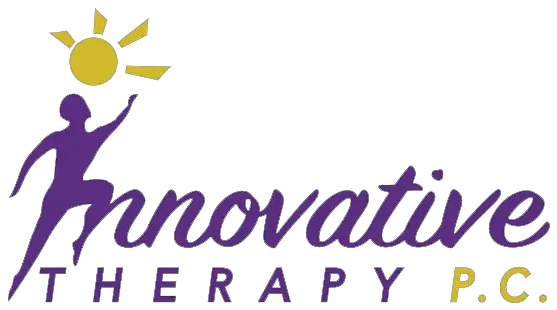Meet the specialist for shoulder pain – your guides to a pain-free life! In this quick guide, orthopaedic experts spill secrets, share hacks, and tackle all things shoulder health.
Whether you’re recovering from an injury or aiming for peak performance, these specialists have your back (or, should we say, shoulder). Say goodbye to aches and hello to a more robust, happier you. Ready to unlock the insider tips? Let’s dive in!
Navigating the Decision: When to Visit an Orthopedic Specialist for Shoulder Pain

Deciding to see an orthopaedic specialist for shoulder pain is a big step toward figuring out, managing, and eventually easing the discomfort. It’s not just about feeling pain—it’s about considering different things that help you decide to see an orthopaedic pro.
Prolonged Discomfort And Its Implications
How long your shoulder pain lasts is really important in deciding if you should see an orthopaedic specialist. If it doesn’t get better after a few days, keeps getting worse, or sticks around even with home treatments, it’s time to see a pro. Long-lasting pain could mean there’s something serious going on that needs expert attention to diagnose and treat correctly.
Functional Limitations And Lifestyle Impact
Another thing to consider when deciding to see an orthopaedic specialist is how much shoulder pain affects your daily life. If it makes it hard to do regular tasks, limits how far you can move your arm, or disrupts your sleep and overall well-being, it’s crucial to get help from a specialist. They can figure out what’s causing the pain and create a treatment plan that fits your lifestyle and goals.
Trauma And Sudden Onset
In cases of trauma, such as a fall or accident resulting in shoulder pain, an immediate visit to an orthopaedic specialist is warranted. Sudden onset of intense pain, especially after an injury, could indicate fractures, dislocations, or other acute issues requiring prompt intervention. In these instances, time is of the essence to prevent further damage and expedite the healing process.
Chronic Or Recurrent Pain
If you have long-lasting or repeating shoulder pain that comes and goes, it’s time to see an orthopaedic specialist. They’re experts in understanding chronic issues, figuring out what’s causing the problem, and creating plans for lasting shoulder health.
Decoding The Art Of How Orthopedic Doctors Treat Shoulder Pain
When you decide to see an orthopaedic specialist for shoulder pain, it’s essential to know the different ways they treat it. Orthopaedic doctors use a variety of approaches, from conservative methods to surgery, depending on your diagnosis and situation.
Conservative Measures
Orthopaedic doctors often commence treatment with conservative measures aimed at alleviating pain and promoting healing without surgical intervention. Physical therapy, tailored exercise regimens, and lifestyle modifications form the cornerstone of these approaches. Additionally, anti-inflammatory medications and pain management techniques are employed to enhance comfort and facilitate the body’s natural healing processes.
Injections For Pain Relief
In cases where pain persists despite conservative measures, orthopaedic specialists may turn to injections for targeted relief. Corticosteroid injections can effectively reduce inflammation, providing temporary relief from pain. Additionally, hyaluronic acid injections may lubricate the joint and enhance mobility, particularly in cases of arthritis.
Surgical Intervention
If non-surgical methods aren’t enough or the problem requires surgical correction, orthopaedic doctors suggest different surgical procedures. Arthroscopic methods, such as using a small camera for less invasive repairs, are often used for issues like rotator cuff tears. In more complicated situations, open surgery may be necessary to deal with fractures, dislocations, or significant tissue damage.
Rehabilitation And Post-Surgical Care
The journey towards shoulder pain relief continues after surgery. Rehabilitation and post-surgical care are integral components of orthopaedic treatment plans.
Holistic Approach to Long-Term Wellness
Orthopaedic doctors take a comprehensive approach, focusing on long-term well-being and prevention. By teaching patients about proper shoulder mechanics, ergonomics, and lifestyle changes, they encourage a proactive role in shoulder health. This strategy goes beyond just managing pain, aiming to tackle the root cause and reduce the chances of the issue coming back.
Navigating Emergencies: When to Seek Urgent Care or Visit the Emergency Room for Shoulder Pain

When it comes to shoulder pain, it’s essential to know when to choose urgent care or head straight to the emergency room. Making the right call ensures timely and fitting interventions, avoiding more problems and speeding up the road to recovery.
Urgent Care For Shoulder & Elbow Pain
Swift Resolution For Non-Emergent Issues
Urgent care centres are an excellent option for people dealing with shoulder and elbow pain that’s not life-threatening. Issues like minor injuries, strains, or sudden pain that isn’t an emergency can be quickly treated at urgent care. They have the tools to diagnose with X-rays and provide treatments like pain relief, splinting, or bracing, getting you back on track fast.
Accessibility and Efficiency
Urgent care centres offer quick and efficient care, bridging the gap between primary care and emergency rooms. If you have sudden shoulder or elbow pain from sprains, strains, or minor injuries, urgent care can help. You’ll get fast attention and specialized care without the long waits often seen in emergency rooms for less critical problems.
When to Go to the Emergency Room
Critical Situations Demanding Immediate Attention
Some shoulder pain situations need immediate attention in the emergency room. Trauma, severe fractures, dislocations, and sudden, intense pain are signs you should go to the emergency room. The goal is to prevent more damage, check how bad the injury is, and start treatments quickly for the best results.
Comprehensive Assessments and Imaging
Emergency rooms can do thorough checks and quick imaging like X-rays or CT scans to figure out how severe a shoulder or elbow injury is. This is crucial for getting the correct diagnosis and starting the right treatments on time, especially for fractures, dislocations, or traumatic injuries.
Sudden Onset of Intense Pain
If you suddenly experience intense pain, especially with swelling, deformity, or loss of sensation, it’s a warning sign of potentially serious injuries. Trust your instincts and get prompt medical attention at the emergency room. Acting quickly can make a big difference in how well you recover.
FAQ More About Specialist For Shoulder Pain
What Are Two Warning Signs Of A Rotator Cuff Tear?
If your shoulder feels weak, like it’s been hitting the gym a bit too hard, and lifting your arm becomes a Herculean task, those could be warning signs. Picture it as your shoulder sending up red flags, like a little alert system.
How Do Doctors Fix Shoulder Pain?
Shoulder pain can be treated in various ways, such as through physical therapy, medications, injections, or surgery if needed. The best approach depends on the diagnosis and how severe the condition is.
Should I See A Doctor Or Chiropractor For Shoulder Pain?
If your shoulder pain is long-lasting or terrible, it’s best to see an orthopaedic specialist. They can give you a thorough diagnosis and create a treatment plan just for you. While chiropractors can help with some muscle and bone problems, they might not be enough for severe shoulder pain.
How Can I Tell If Shoulder Pain Is Severe?
If your shoulder pain is terrible and it’s hard to move your arm, or if you’re feeling numbness or tingling, it could mean something serious is going on. It’s essential to see an orthopaedic specialist to get checked out and figure out what’s going on.
What Is A Red Flag For Shoulder Pain?
A sudden, sharp pain accompanied by a popping or tearing sensation, especially after trauma, is a red flag for potential serious injury. Seeking immediate medical attention is imperative in such cases.
How Long Is Too Long For Shoulder Pain?
Shoulder pain persisting for more than a few days or worsening over time should prompt a consultation with a specialist. Delaying treatment may lead to complications and prolonged discomfort.
Where Can I Find A Specialist For Shoulder Pain Near Me?
Suppose you’re experiencing shoulder pain and seeking specialized care. In that case, you can search online for a specialist for shoulder pain near you or ask for recommendations from your primary care physician or friends/family who have sought treatment for similar issues.
What Type Of Doctor Should I Consult For Shoulder Pain?
When experiencing shoulder pain, it’s recommended to consult with a specialist for shoulder pain, such as an orthopaedic surgeon, sports medicine physician, or physiatrist who can provide comprehensive evaluation and tailored treatment options.
Shoulder Pain: What Kind Of Doctor Treats This Condition?
Shoulder pain can be effectively treated by a specialist for shoulder pain who has expertise in diagnosing and managing shoulder-related issues. Orthopaedic specialists, sports medicine physicians, and physiatrists are all qualified to address shoulder pain effectively.
What Kind Of Specialist Should I See For Shoulder Pain?
If you’re experiencing shoulder pain, it’s essential to see a specialist for shoulder pain who can offer specialized care and treatment options tailored to your specific condition. Orthopaedic surgeons, sports medicine physicians, and physiatrists are all qualified to diagnose and treat shoulder pain.
Who Should I See For Shoulder Pain?
When seeking care for shoulder pain, it’s advisable to see a specialist for shoulder pain who has expertise in diagnosing and managing shoulder-related conditions. Orthopaedic surgeons, sports medicine physicians, and physiatrists can effectively address shoulder pain and provide personalized treatment plans.
Which Type Of Doctor Is Best For Shoulder Pain?
The best type of doctor for shoulder pain is a specialist for shoulder pain who has specialized training and experience in diagnosing and treating shoulder-related conditions. Orthopaedic surgeons, sports medicine physicians, and physiatrists are all qualified to provide adequate care for shoulder pain.
Should I See A Specialist For Shoulder Pain, Or Can I Start With My Primary Care Physician?
While it’s common to start with your primary care physician for initial evaluation and management of shoulder pain, you may benefit from seeing a specialist for shoulder pain for further assessment and treatment. Orthopaedic surgeons, sports medicine physicians, and physiatrists can offer specialized expertise in managing shoulder conditions.
What Type Of Specialist Is Recommended For Chronic Shoulder Pain?
For chronic shoulder pain, it’s recommended to see a specialist for shoulder pain who can provide comprehensive evaluation and management options tailored to your specific condition and needs. Orthopaedic surgeons, sports medicine physicians, and physiatrists can offer expertise in managing chronic shoulder pain effectively.
What Are the Common Causes of Shoulder Pain That May Require the Expertise of an Orthopedic Specialist?
Shoulder pain can stem from various conditions such as shoulder dislocations, injuries, and degenerative issues. Consulting an orthopedic specialist is crucial for accurate diagnosis and tailored treatment plans.
When Should I Consider Surgical Treatment for My Shoulder Pain, and How Can an Orthopedic Specialist Help?
Surgical intervention may be recommended for severe shoulder conditions such as shoulder dislocations or rotator cuff tears. An orthopedic specialist assesses your condition and determines the most appropriate surgical approach for optimal outcomes.
What Non-Surgical Shoulder Treatments Are Available for Shoulder Pain, and How Effective Are They Compared to Surgical Options?
Non-surgical treatments such as physical therapy, medication, and injections can effectively manage many shoulder issues, including shoulder dislocations and injuries. Orthopedic specialists tailor treatment plans based on individual needs and preferences, often exploring conservative options before considering surgery.
What Is Involved in Shoulder Replacement Surgery, and When Is It Recommended by Orthopedic Specialists?
Shoulder replacement surgery is a procedure where the damaged shoulder joint is replaced with a prosthetic implant. Orthopedic specialists may recommend this option for severe shoulder arthritis or irreparable shoulder injuries, aiming to alleviate pain and restore function.
How Do Orthopedic Specialists Diagnose and Treat Shoulder Dislocations, and What Are the Potential Long-Term Implications If Left Untreated?
Orthopedic specialists diagnose shoulder dislocations through physical examination and imaging tests. Prompt treatment, including reduction maneuvers and immobilization, is crucial to prevent further damage and long-term complications such as recurrent dislocations and shoulder instability.
What Specialized Expertise Do Orthopedic Specialists Offer in Managing Shoulder Injuries Compared to Other Healthcare Providers?
Orthopedic specialists undergo extensive training and have specialized knowledge in diagnosing and treating musculoskeletal conditions, including shoulder injuries. Their expertise enables them to develop tailored treatment plans to address each patient’s unique needs effectively.
Conclusion
Embarking on the road to ease shoulder pain is like setting out on an adventure. You need to know when to ask for help, uncover what’s causing the discomfort, and rely on orthopaedic specialists to guide you toward relief.
Shoulder health is not merely a luxury; it’s integral to our daily activities. Promptly addressing shoulder pain ensures a swift return to a pain-free, active lifestyle. Don’t let shoulder discomfort dictate your life – consult a specialist and chart the course towards relief and recovery.





